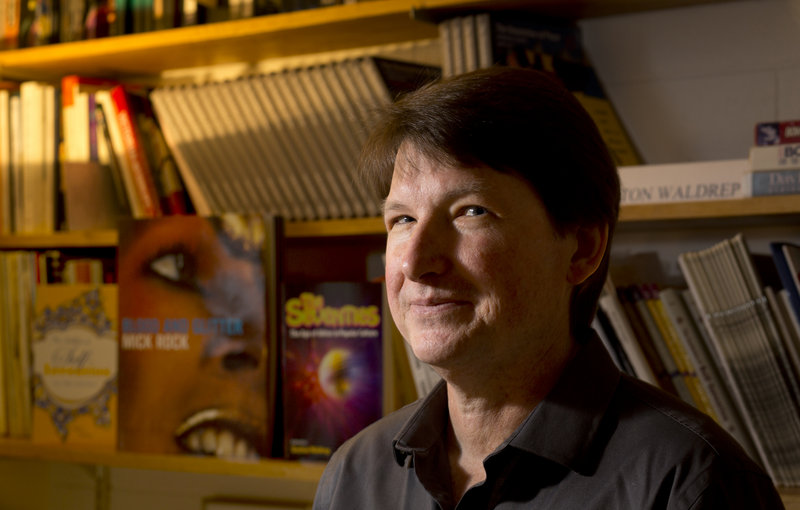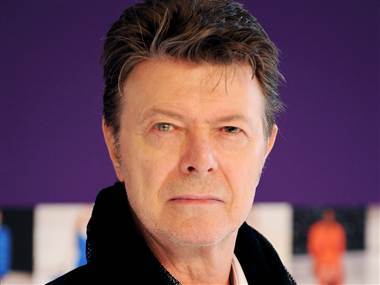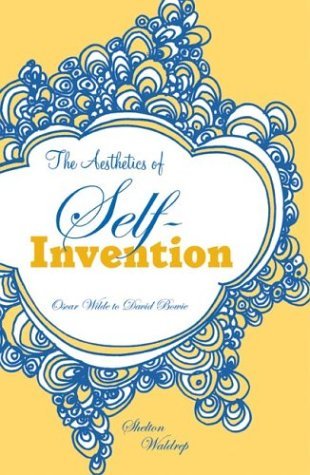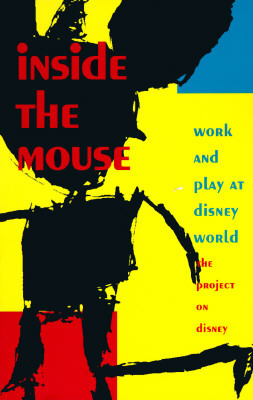When Ben Rybeck signed up for a University of Southern Maine class called “The Phenomenology of Performance: David Bowie,” he wasn’t quite sure what to expect.
He knew the professor, Shelton Waldrep, to be a thoughtful, well-prepared teacher who challenged students. Still, he had never taken a course like this, and it made him wonder.
Could a course on a glittery, gender-bending pop music star be as challenging as, say, in-depth studies of the works of James Joyce or Charles Dickens? Or would the course be filled with Bowie fans hoping for an in-class Bowie love fest?
“I was surprised, in a good way, by the level of difficulty of the criticism we had to read,” said Rybeck, who took the course about five years ago and now teaches English at the University of Arizona. “He (Waldrep) uses this very populist material and funnels it into some of the most difficult critical text, such as pieces on gender and performance.
“I think in an academic setting, people think if you’re not studying Dickens or Joyce you’re not doing serious analytical work. But the popular material can often teach you a lot more about the times in which they were made.”
Bowie, 66, is releasing his first album in 10 years, “The Next Day,” in stores on Tuesday. The event is causing fans and critics to reflect on a 40-plus year career that has significantly impacted the worlds of music, fashion, film, performance, art and pop culture.
But very few fans take such a wide-ranging, critical-analytic look at Bowie’s cultural significance as Waldrep, a USM English professor since 1998. He became a Bowie fan in college, when he first heard Bowie’s 1980 album “Scary Monsters.”
As an academic, Waldrep has been teaching a Bowie seminar for more than 10 years, and wrote about Bowie in his academic book “The Aesthetics of Self-Invention: Oscar Wilde to David Bowie” (University of Minnesota Press). He’s been working the last few years on another book, focused solely on Bowie, titled “Future Nostalgia: Performing David Bowie.”
Waldrep is trying to finalize a publishing deal for the book, and hopes to finish it this year. The book is not a biography or a retrospective, but instead a critical look at the various stages of Bowie’s career and the impact his work in so many areas has had on popular culture.
“The book is an attempt to bring the strands of his career together, looking at things like his connection to Lady Gaga and his connection to disability studies (Bowie’s half brother was schizophrenic),” said Waldrep, 52. “I think what makes him stand out in popular culture is that he has exposed people to ideas that come from the avant garde consistently throughout his career.”
In his Bowie seminars at USM, Waldrep says studying Bowie helps serve as a way to “dissolve the boundary” between high and low art, which is an increasing trend in academia. He thinks it’s an important thing to do when trying to study a certain culture at a certain time.
“If we dismiss a lot of popular culture, we miss an opportunity to learn a lot about ourselves. The novels we read and the music we listen to are important to us; we care about them,” said Waldrep. “It’s not just a novel or a film, it’s an artifact that tells us something about the culture we live in.”
In the area of pop culture, Waldrep also co-authored a book called “Inside the Mouse: Work and Play at Disney World.” But he teaches poetry and Victorian literature as well, and wrote a book called “Inauthentic Pleasures: Victorian Fakery and the Limitations of Form.”
Waldrep admits he is a Bowie fan, but wasn’t always. In fact, growing up in the college town of Tuscaloosa, Ala., he had no interest at all in pop music. He preferred classical music, and was more interested in science than literature or pop culture.
But then he heard Bowie’s “Scary Monsters” in college, and it started him down a different path.
“It was the first record I played over and over,” Waldrep said. “And then I found a book that was a very brief but prescient examination of Bowie’s career at that point (around 1980). I think my interest goes back to that.”
In college, Waldrep ended up majoring in English and art history, with a minor in creative writing. When he began teaching, he gravitated toward popular culture, and his USM superiors allowed him to start the Bowie seminar.
“Shelton brings together so many different things in his class, from performance studies to art history, media studies. It cuts across so many forms of media and technology,” said Ben Bertram, an English professor at USM and chairman of the department.
In his seminar, Waldrep spans Bowie’s career and its various periods, from his Ziggy Stardust glam period in the ’70s to his video experimentation, his “Berlin trilogy” albums, his pop-hit album “Let’s Dance” and his work through the 1990s and today.
Waldrep knows the class might raise some eyebrows and might be thought of as too fluffy for a senior college course. So he constantly works to try to keep the academic standards on a level with literature or other more traditional college subjects.
“I know there are conservative lit majors who don’t think (Bowie) is worthy of this attention,” said Waldrep. “And then there are people who take the class thinking it’ll be all fan tidbits.”
Although Bowie’s new album is not yet in stores, it is available for streaming online, so Waldrep has heard it.
“It’s very melodic, with a lot of short intros and guitar fuzz, and some sly references to his own past,” he said. “There’s a song about wandering around in Berlin, ‘Where Are We Now,’ that’s very moving and emotional. It’s the only ballad.”
Because the book he’s currently working on is not a biography, Waldrep did not seek approval from Bowie. In the past, he has reached out to Bowie’s people to try to talk to him, even though the somewhat reclusive star is well-known for not cooperating on such matters.
But Waldrep said he may try again to talk to the man who inspired his college course.
If Bowie’s career is any indicator, his attitude on anything — including talking to writers — could change.
Staff Writer Ray Routhier can be contacted at 791-6454 or at:
rrouthier@pressherald.com
Twitter: RayRouthier
Send questions/comments to the editors.






